
What account of us will future civilizations discover? (Image generated by Ideogram AI)
By Mariana Meneses
Have you ever wondered how we will be remembered?
What will our record say, millions of years from now, when there are no more humans – at least of the type we are today – and when Earth is beyond recognition, if it even exists? We send information out to space constantly, and we’ve been doing it for some time now. What image of us will the archeologists of the future put together?
Over the course of human history, the methods for preserving memories have undergone a remarkable evolution, adapting to technological advancements and societal needs. It began with our ancestors, who depicted their experiences through cave paintings (the earliest known cave paintings are more than 44,000 years old), using pigments made from natural materials. As civilizations developed, writing on parchment emerged, enabling the recording of knowledge and personal stories in a more portable and durable form. The invention of paper in ancient China revolutionized memory preservation, allowing for widespread dissemination of information.
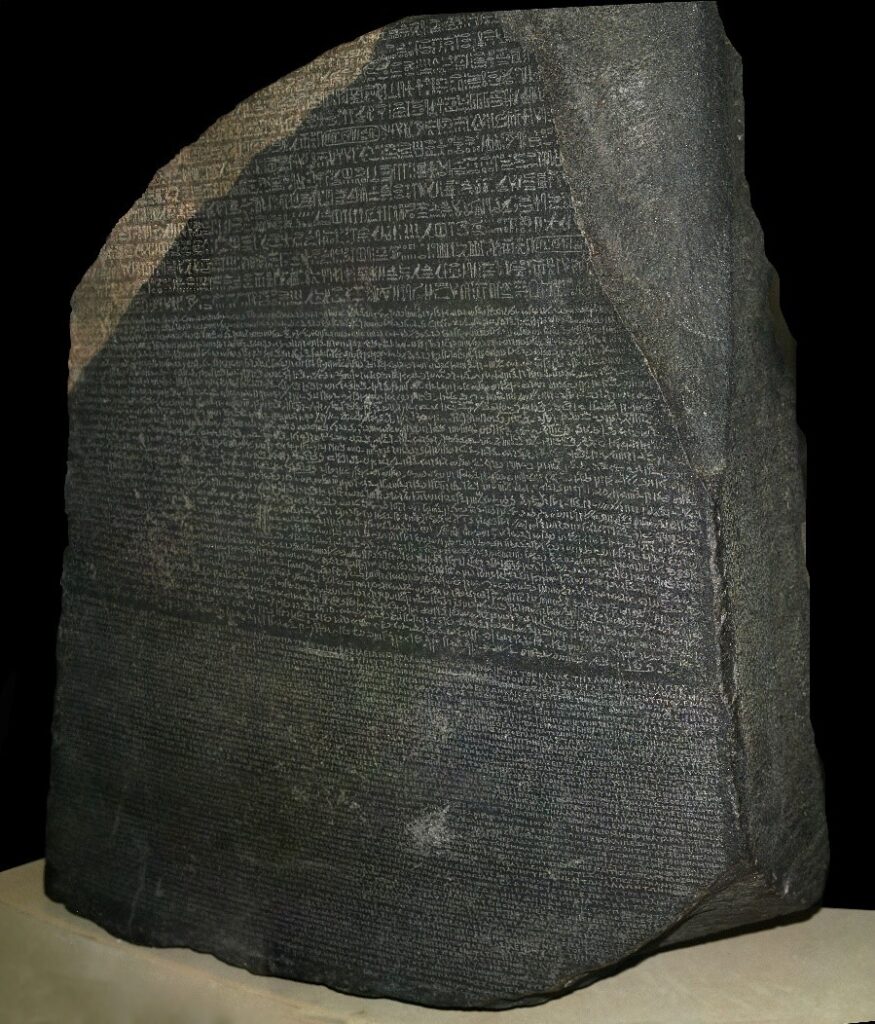
The Rosetta Stone is a stone slab with text written in three different scripts: hieroglyphic, Demotic, and Greek. It was found in Egypt in 1799 by a French soldier and it helped scholars to decipher the ancient Egyptian language. The text is a decree from King Ptolemy V in 196 BC, praising his achievements and asking for his worship. Image: Hans Hillewaert.
With the advent of the digital age, the storage medium shifted to more compact and efficient devices.
Floppy disks became popular in the late 20th century, followed by the introduction of pen drives, which offered greater storage capacity and portability. In recent years, cloud storage has emerged as a ubiquitous method for memory preservation, providing immense storage space accessible from any device with an internet connection. This transition reflects our increasing reliance on digital technology and the desire for convenient access to our memories in an interconnected world.
The rise of artificial intelligence (AI) is adding a new layer of evolution to our methods of memory preservation.
Natural Language Processing (NLP) has enabled machines not only to record exactly what we say or write, but also to interpret and potentially alter the information.
This technology brings both opportunities and challenges. AI algorithms can now analyze and sometimes predict the context, sentiment, and even the intent behind our words, allowing for more nuanced interpretations and potentially improving the accuracy of recorded memories. However, this ability to interpret, or reinterpret in some cases, information introduces concerns about the potential manipulation or bias that AI systems may introduce.
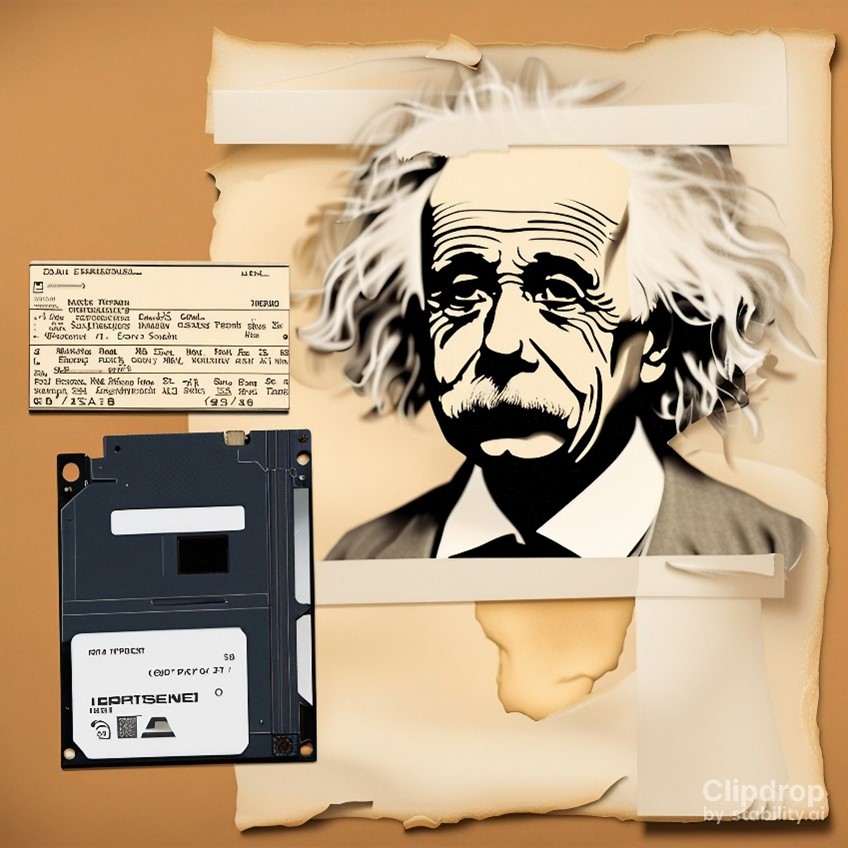
Image generated using ClipDrop.Co.
In another TQR article, we discussed the recently released AI-powered chatbot that allows you to simulate a conversation with Einstein. Called the “Digital Einstein Experience”, the chatbot was developed by a startup called Aflorithmic in partnership with Uneeq, an AI company that develops autonomous digital human platforms designed for customer interactions. According to the project’s homepage, Digital Einstein aims to “clone” the real Einstein “down to the most subtle movements,” as it “can recount tales of his life and core works, give you a daily science quiz or tell you one of his favorite jokes. As always, he’s here to teach, inspire and engage.”
While applications like the Digital Einstein Experience are undeniably awe-inspiring and have the potential to be incredibly helpful in various contexts, we must remain cautious about inadvertently reducing our understanding of complex lifeforms to mere points in a plot.
The ability of AI algorithms to simulate conversations and replicate historical figures can provide valuable insights and inspire curiosity. However, there is a risk of oversimplifying the depth and complexity of human experiences and the intricate workings of the natural world.

Two images created with the same prompt: “digital version of Da Vinci’s Monalisa,” using Stable Diffusion XL (above) and DALL-E (below).

The images above showcase different AI-generated renditions of Leonardo da Vinci’s iconic Mona Lisa, using the same prompt.
However, what makes these interpretations relevant is the fact that they were generated using AI algorithms, based on a simple prompt. These portrayals evoke a complex mix of discomfort and reflection, as they highlight how digital interpreters, directed by just one line of input (i.e. prompt), could replicate and simultaneously alter and decharacterize one of humanity’s most influential artworks. This realization raises questions about the nature of creativity and authorship in the digital age and prompts us to ponder the far-reaching consequences and implications of AI in reshaping our artistic memory, or heritage.
With the proliferation of AI tools capable of reading, interpreting, and summarizing various types of documents, from books to videos to scientific papers to datasets, our reliance on AI-generated summaries and insights is increasing. These tools (examples include Upword AI, ChatPDF, Dante AI and many more) can take notes for us, identify and highlight crucial details within files, and assist in extracting relevant information from vast amounts of data. What effects could this have on our memory and perception of events?
The accuracy and biases inherent in AI algorithms may influence our understanding of what we have read, what is considered important in a given context, and ultimately, our interpretation of past occurrences. This raises intriguing possibilities, but also many concerns about the potential consequences of relying on AI for shaping our memories.
The emergence of companies like Inflection AI further emphasize the growing interest in leveraging AI technology to enhance personal assistance and memory recall. Inflection AI’s chatbot assistant Pi (short for Personal Intelligence) can interact with users in natural language and perform tasks such as answering questions, generating content, providing feedback, and making suggestions, adapting to different modes and settings according to the user’s preferences.
Another example is Personal AI, which aims to create virtual versions of ourselves. As these services continue to emerge, it becomes crucial to reflect on the potential impact of AI on the reliability, objectivity, and ownership of our memories and the broader consequences for society as a whole.
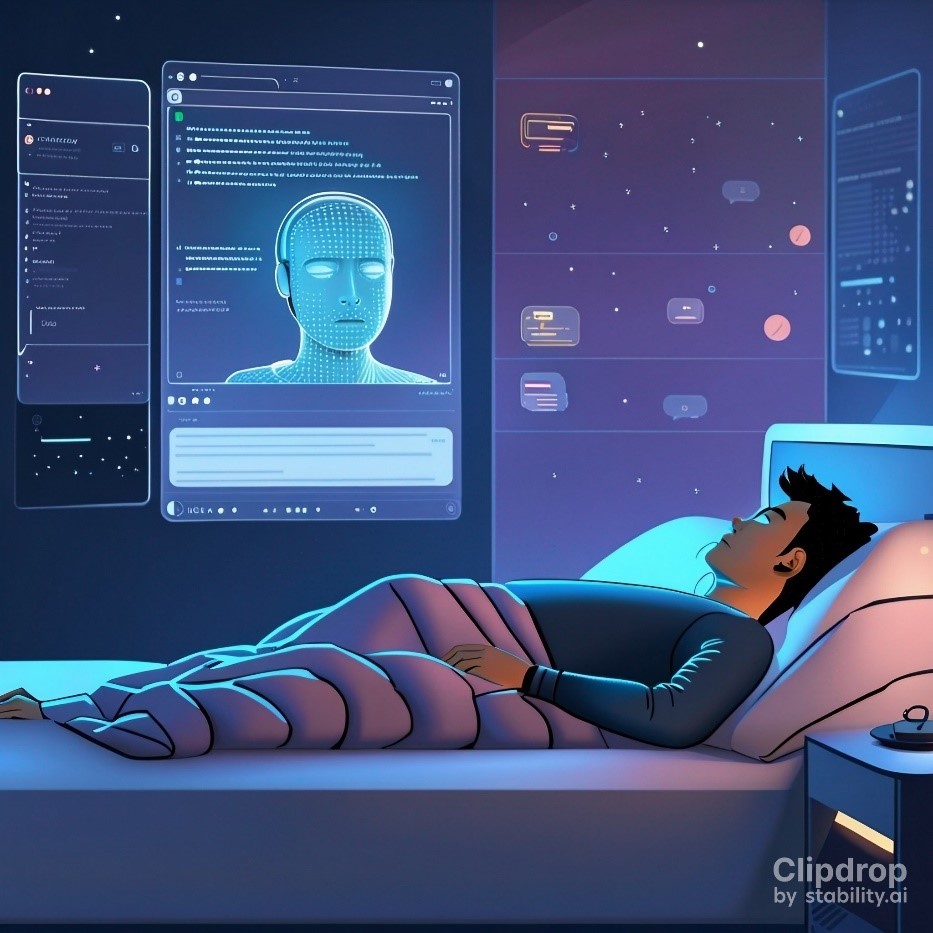
How relevant will humans become in the future? Image generated using ClipDrop.Co.
On the Futurati Podcast, Suman Kanuganti, co-founder and CEO of Personal.ai, said that “The era of personalized AI is here.”
Unlike the now-famous ChatGPT, a large language model trained on massive amounts of data from the internet, Personal AI is a personalized language model that is trained on individual data. When in autopilot, the AI can continue your conversations with others, making it a useful tool for busy professionals and individuals who want to outsource some aspects of their lives to the AI. In the long term, applications such as Personal AI could become comprehensive digital assistants that execute various tasks, such as scheduling, reminders, and communication.
Building a technology that approximates the way you think or act in different situations raises questions about privacy and data ownership.
Additionally, there are clear concerns about data security and control. There is also the issue of accountability: what if the AI answers ‘for you’ something you wouldn’t say? These are a few of the many questions surfacing in the AI boom we are living in.
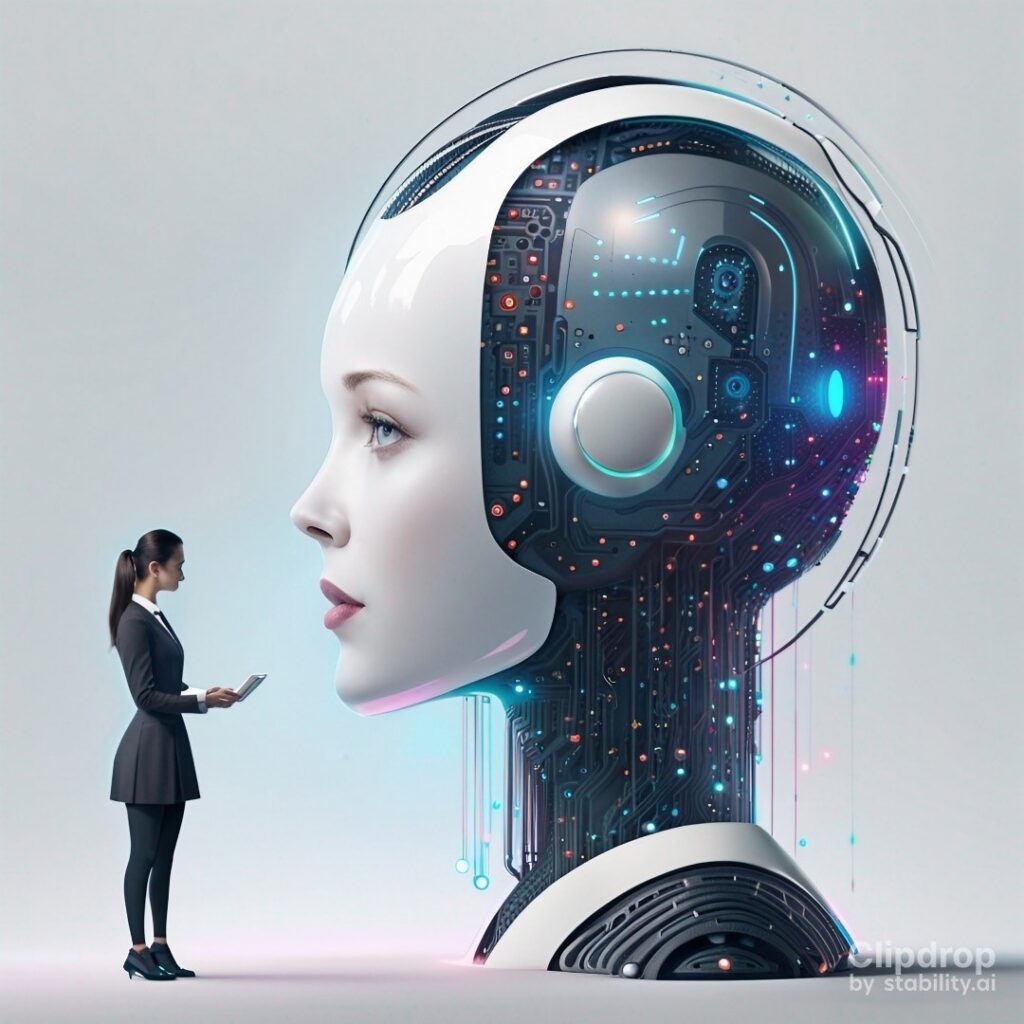
Will our AI personas become bigger than ourselves? Image generated using ClipDrop.Co.
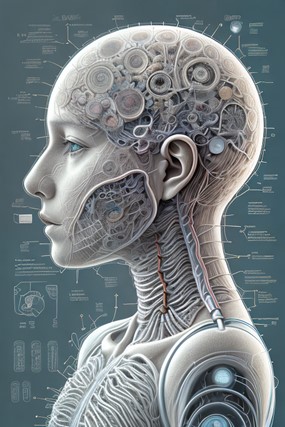
The rise of AI can cause unanticipated consequences to what, when, and how we remember. We should be aware of how our immediate interests may hamper our future ability to remember and learn from the past. Credit: InstantArt.
Our memories serve as the foundation for our understanding of the world and the experiences that shape us.
As AI continues to advance and integrate into various aspects of our lives, it is essential to contemplate the extent to which it can surpass our own agency in shaping our decisions, choices, behavior, and, fundamentally, our memories – in other words, become bigger than ourselves.
However, as AI becomes increasingly involved in our information processing, there is a need to carefully consider its influence and the potential for it to overshadow our autonomy. Striking a balance between leveraging AI’s capabilities and preserving our individuality and self-determination becomes a crucial aspect of navigating the ever-evolving relationship between humans and technology.
Want to further expand your horizons? Explore these handpicked TQR articles:
- Human Creativity in the Era of Generative AI
- GPT-3: the Benefits and Perils of Technology Designed to Replicate Human Speech
- Biology Delivers Major Advances to Robot Technology
- The Science of Consciousness: Have We Finally Solved the Mystery Inside Our Heads?
- Minding the Future: The State of Global AI Regulations


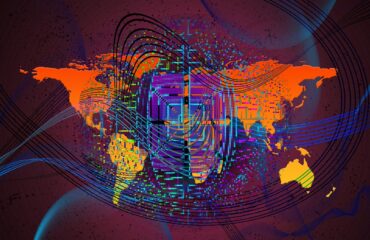

A very interesting article. I had not heard of the personal AI assistant. Useful in so many ways but fraught with risk. Let’s hope we get in right